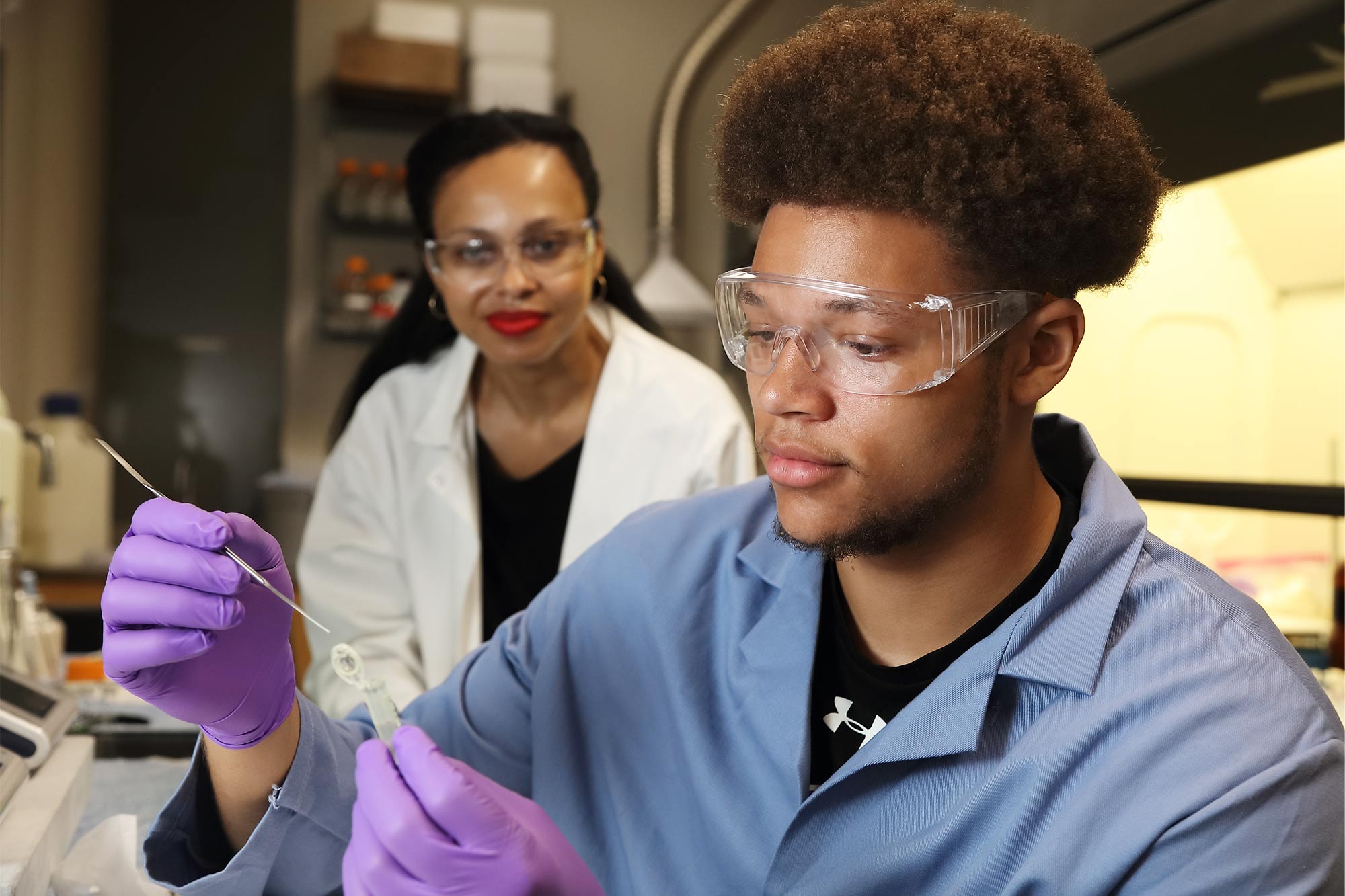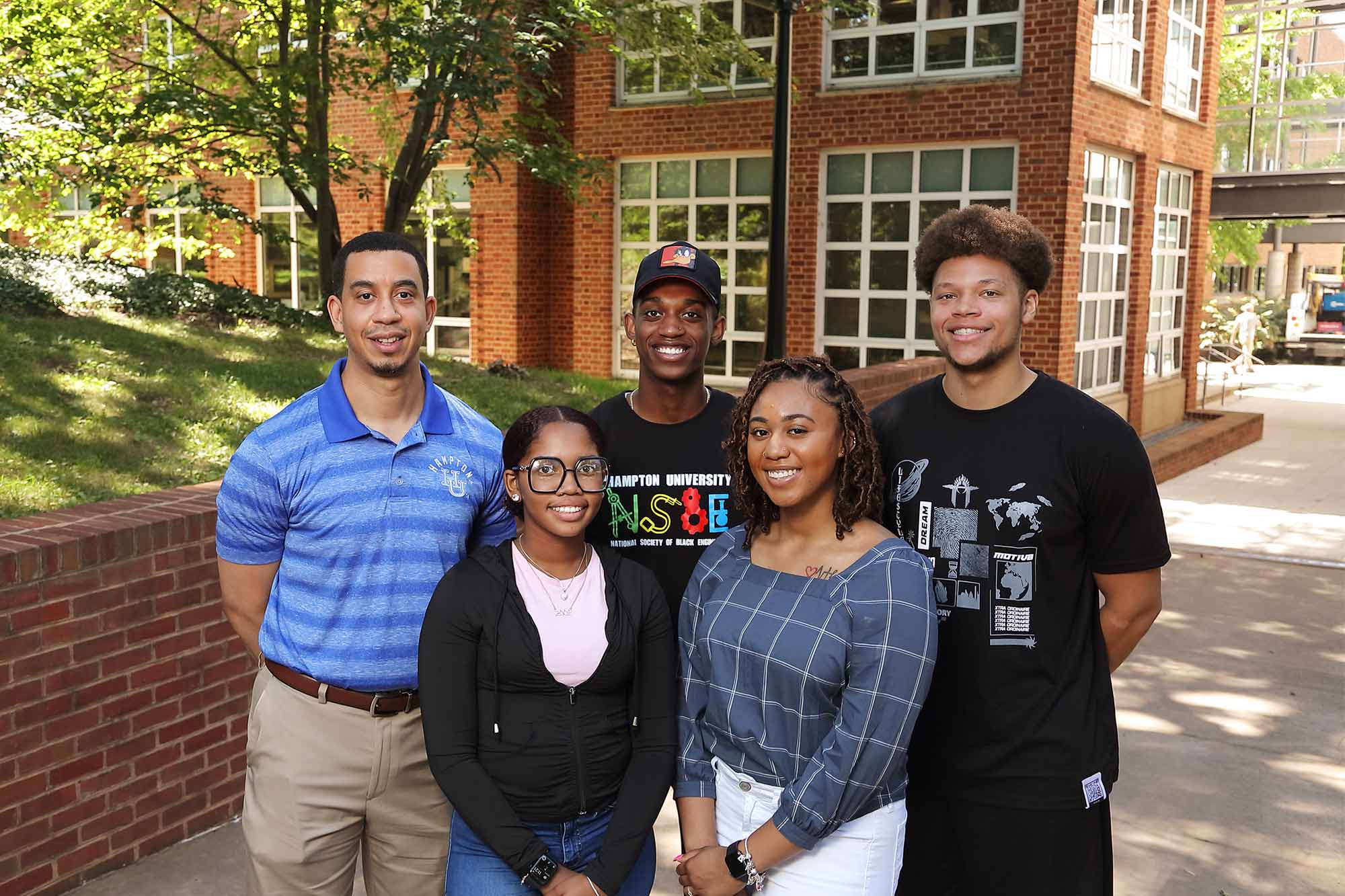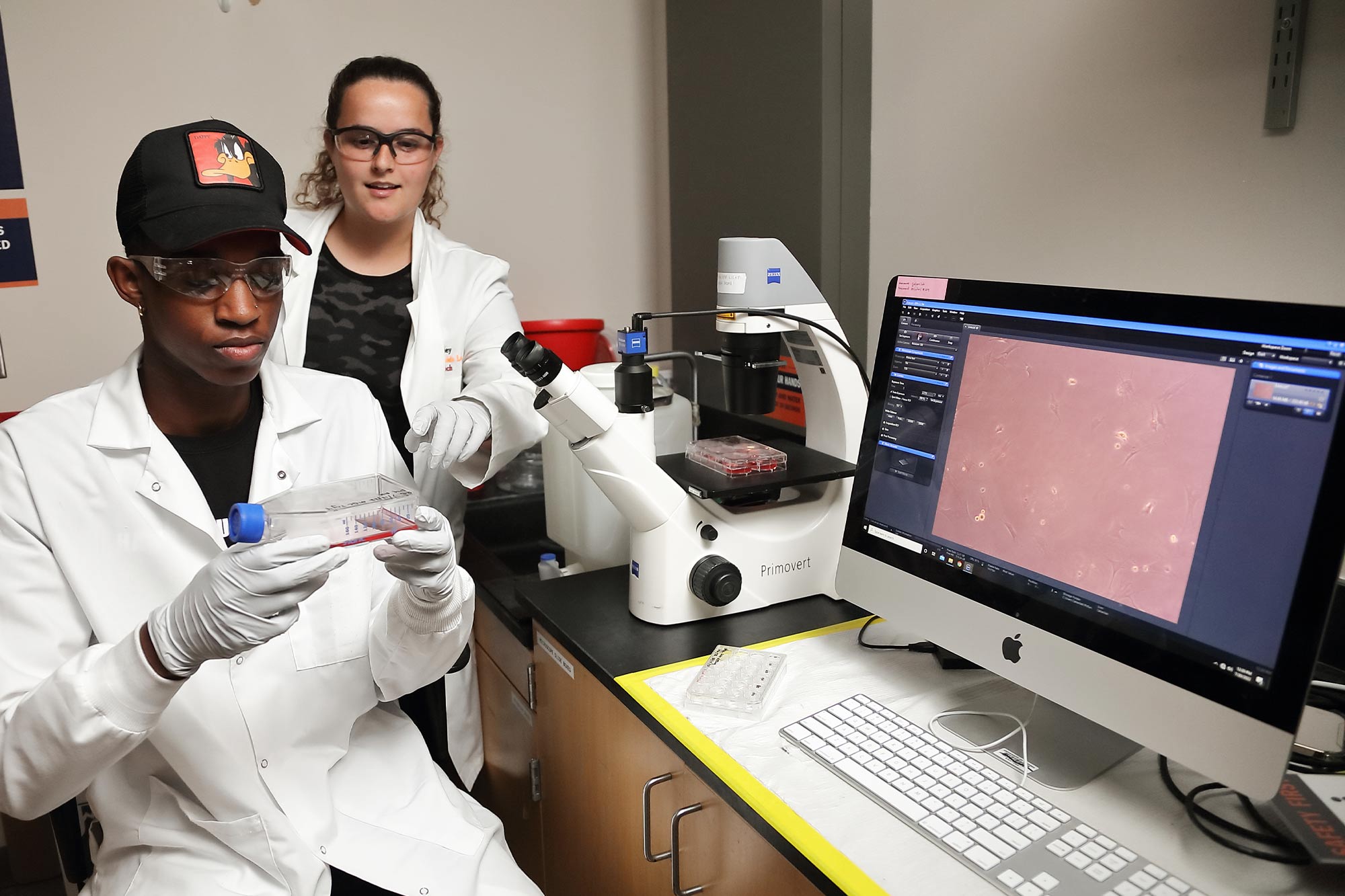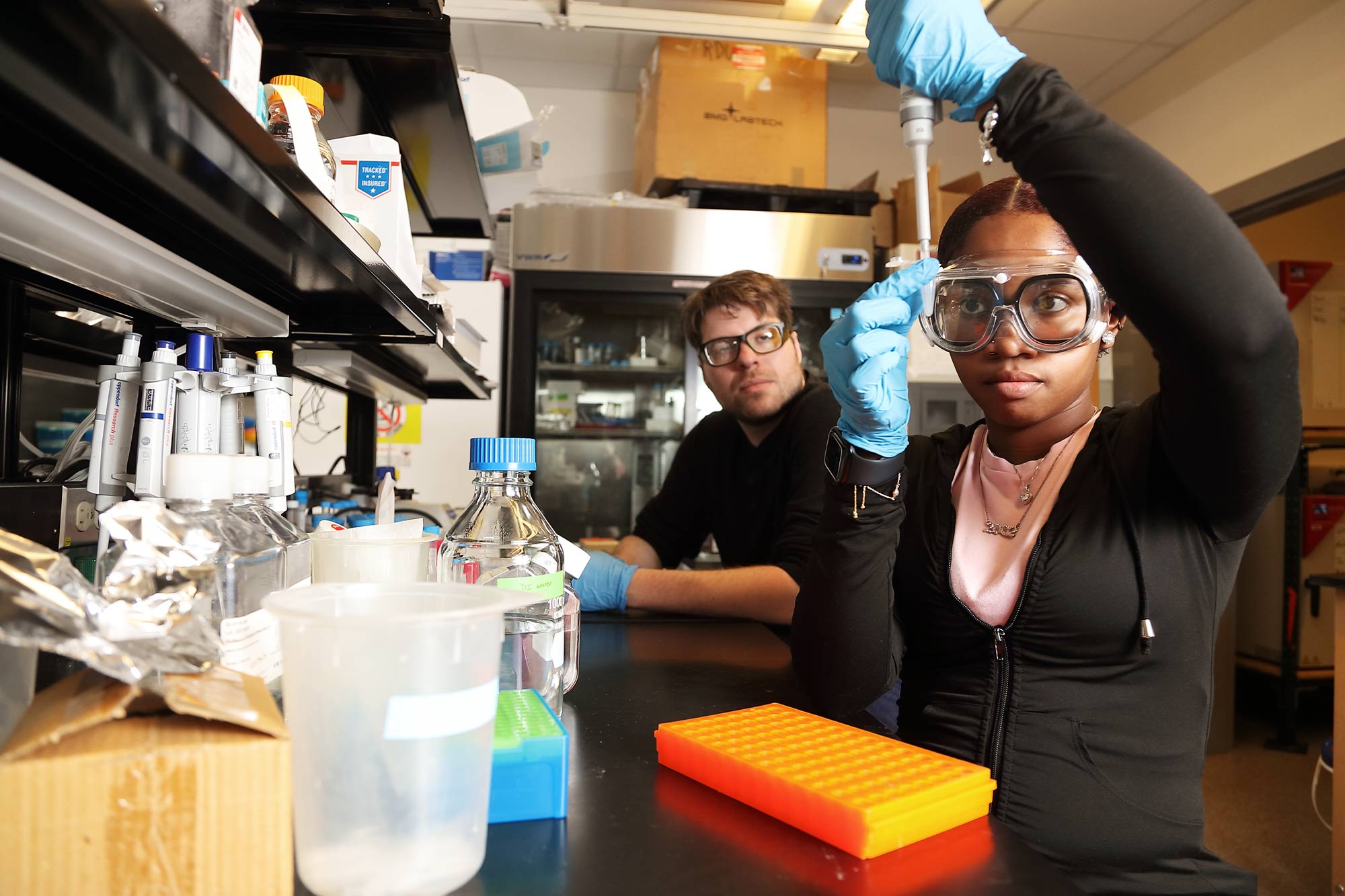In addition to their primary lab projects, the Hampton students are working with Taite and Dumas on a collaboration to make a polyurethane film using ultraviolet light to “cure” the building-block molecules to form the material, a process called photo crosslinking.
Dumas develops polyurethane materials for orthopedic tissue engineering. Taite’s lab makes soft hydrogels – a clear material resembling Jell-O – designed to promote growth of soft tissue such as blood vessels.
“Polyurethanes are much more elastic, much stronger, tougher than hydrogels,” Taite said. “We’re looking at whether or not we can blend these materials, because my hydrogels are also photo crosslinked.”
Normally when Dumas sends students off for summer research experiences, he doesn’t get to see them in action. This year, he successfully applied to UVA’s STRIVE-C, the Short-Term Research Initiative for Visiting Educators in Cancer, sponsored by the UVA Comprehensive Cancer Center.
The program encourages research partnerships between UVA faculty members of the cancer center and faculty at minority-serving institutions. It does so by providing a host lab at UVA and funding for four weeks to allow the visiting faculty member to do original research.
As a UVA Cancer Center member, Caliari gladly agreed to host Dumas this summer.
“It’s really given me an energy boost with regard to my research,” Dumas said. “Typically, HBCU faculty teach three to four classes per semester, and we are trying to conduct research.
“A partnership like this, with Dr. Taite and Dr. Caliari and other colleagues in chemical engineering, being able to come here and work with the students on research that has synergy with my own really helps me generate ideas, as well as complete projects that I normally do not get a chance to complete,” Dumas continued. “Also, DessaRae and Alex work in my lab. They’re getting extra mentorship I often don’t get a chance to conduct during the normal school year.”
All four Hampton University students were drawn to chemical engineering because of a parent’s influence or illnesses in their families. They’re motivated to find cures so others don’t struggle in the same way as their loved ones.
Harmon found the perfect spot this summer on “Team Muscle” in the Caliari biomaterials lab. When the internship began, he’d been intent on industry after graduation and then a master’s degree, but now he’s considering going straight for a doctorate.
“My aunt’s been battling with heart failure, and I just want to improve the treatment,” Harmon said. “If we could find ways to create regenerative tissue, she wouldn’t have to go through back-to-back surgeries, and she’d be able to live better knowing something’s working, instead of just a temporary fix. So that’s what I’m trying to come up with.”





.jpg)







